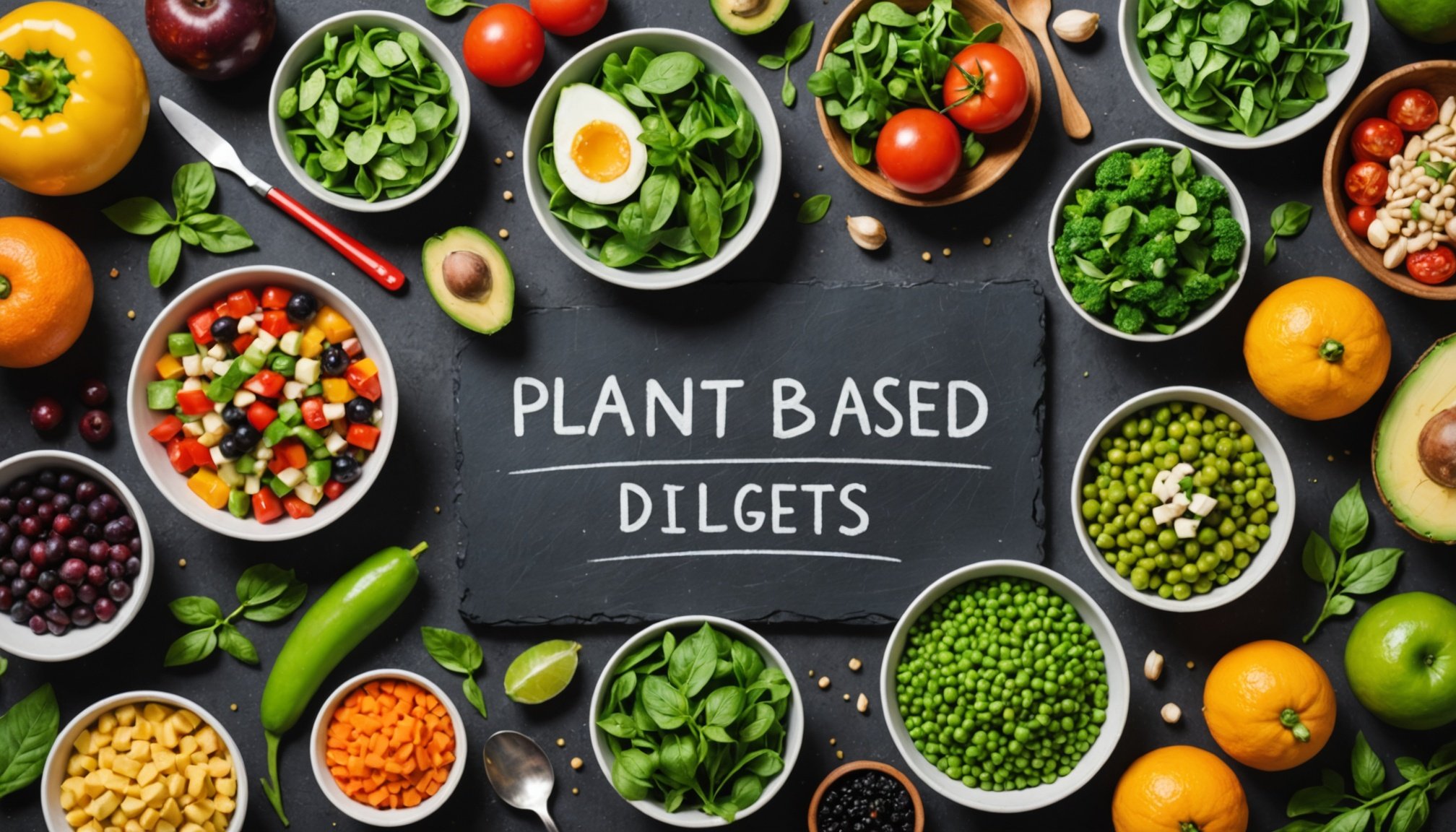Understanding Vegan Athlete Nutritional Needs
Navigating the nutritional requirements of vegan athletes involves understanding how a plant-based diet can support athletic performance effectively. The benefits of a plant-based diet for athletes include reduced inflammation, quicker recovery times, and an abundance of antioxidants. However, achieving balanced nutrition requires careful planning, especially when it comes to macronutrient intake.
For athletes, consuming adequate protein is crucial for muscle repair and growth. While plant sources like legumes, tofu, and quinoa are excellent, vegan athletes may need to pay extra attention to combining different proteins to ensure all essential amino acids are consumed. Additionally, total calorie intake might need adjustment, as plant-based diets can sometimes be lower in calories, requiring athletes to consume larger portions or more frequent meals to meet their energy demands.
Topic to read : Top Strategies for UK Lacrosse Coaches to Boost Goalie Reflexes Effectively
Micronutrients present another layer of focus. Vegan diets can sometimes fall short in iron, vitamin B12, and omega-3 fatty acids, which are key for optimal performance and overall health. To tackle these, athletes should incorporate fortified foods and consider supplements after consulting with a healthcare professional. By adhering to these dietary guidelines, vegan athletes can support their performance while enjoying the numerous health benefits of a plant-based lifestyle.
Crafting Customized Plant-Based Meal Plans
Crafting effective and personalized meal plans is crucial for vegan athletes focusing on optimal performance. Individualized meal planning ensures that athletes meet their unique nutritional needs based on their training intensity and schedule. A plant-based diet for athletes requires careful attention to macro and micronutrients to sustain energy and promote recovery.
In parallel : Unlocking Endurance: Essential Nutrition Tips for UK Long-Distance Swimmers
A balanced meal combination might include high-protein sources such as lentils, chickpeas, or quinoa paired with complex carbohydrates like sweet potatoes or whole grains. Including a variety of vegetables ensures a rich intake of vitamins and minerals, which are essential for immunity and muscle function.
Timing and frequency of meals can significantly affect athletic training performance. Consuming pre-workout meals rich in carbohydrates and moderate protein supports energy needs and enhances endurance. Post-workout meals should focus on replenishing glycogen stores and providing protein for muscle repair, with a focus on consuming these within an hour after exercise.
Athletes should also consider the frequency of meals throughout the day, typically aiming for three main meals with additional snacks. This approach helps maintain energy levels and supports continuous muscle recovery. Crafting a well-thought-out meal plan allows vegan athletes to maximize their potential while adhering to their dietary preferences.
Addressing Nutritional Deficiencies Common in Vegan Athletes
While adopting a vegan diet can offer numerous health benefits, nutrient deficiencies often pose a significant challenge, especially for athletes. Nutrients such as Vitamin B12, iron, and omega-3 fatty acids are typically lower in plant-based diets, requiring careful attention. Vitamin B12, for instance, is crucial for energy production and can be found sparsely in non-animal sources. Supplementation tends to be the most reliable solution for this deficiency.
Similarly, iron deficiency is common among vegan athletes due to the reduced bioavailability of plant-based iron. Consuming iron-rich foods like lentils and spinach alongside Vitamin C sources can enhance absorption. Nevertheless, supplementation with iron may be necessary to meet the increased demands of athletic training.
Omega-3 fatty acids, essential for reducing inflammation and enhancing recovery, are predominantly found in fish oils. Vegan athletes can turn to algae-based supplements as a potent alternative. Lastly, ensuring comprehensive nutrient intake requires strategic food choices, such as incorporating a diverse range of fruits, vegetables, grains, and legumes into meals. Adding fortified foods can also support nutrient deficiencies management. Methodical supplementation and conscientious diet planning can overcome the nutritional hurdles faced by vegan athletes, enabling them to maintain peak performance.
Case Studies of Successful Vegan Athletes
The rise in veganism among athletes has sparked interest in how plant-based diets influence their performance outcomes. Let’s explore some case studies of vegan athletes and their dietary strategies that have made headlines.
One remarkable story is that of Patrik Baboumian, a strongman competitor whose vegan diet supports his incredible strength. Baboumian’s diet is rich in legumes, grains, and vegetables, providing the protein needed for muscle development. His achievements, like breaking the world log lift record, demonstrate that a plant-based diet can sustain and enhance strength-based sports.
Next, we have Venus Williams, a stellar example in tennis. After being diagnosed with Sjögren’s syndrome, Williams adopted a vegan diet to manage her condition. This dietary change has not only improved her health but also allowed her to continue performing at an elite level. Her experience underscores the potential of vegan diets in managing health conditions while maintaining athletic performance.
Lessons from these vegan athletes highlight the importance of carefully curated dietary strategies tailored to an athlete’s specific needs. Adequate planning ensures they get essential nutrients, like protein and iron, from plant sources. These stories encourage the exploration of veganism as a viable dietary option for athletes seeking optimal performance outcomes.
Tips for Optimizing Performance Through Plant-Based Diets
When striving for performance optimization, it is critical to harness the advantages of a plant-based diet. Everyday choices in plant-based nutrition can significantly enhance recovery and energy levels. To maximize these benefits, incorporate high-quality plant proteins, like lentils and chickpeas, which support muscle repair.
Effective sports nutrition also underscores the need for proper hydration. Consuming adequate water, along with hydrating fruits such as watermelon and cucumbers, is vital. These help maintain electrolyte balance, which is crucial for optimal performance.
Moreover, aiming for performance optimization means paying attention to mental focus and endurance. Omega-3 rich foods such as chia seeds and walnuts can boost brain function. These elements of plant-based nutrition are instrumental in sustaining attention and cognitive performance during training.
To further enhance sports nutrition, emphasizing a variety of colourful fruits and vegetables is recommended. They provide essential vitamins and antioxidants, which protect against muscle damage and inflammation. Tailoring your plant-based nutrition with these elements can lead to substantial improvements in both physical and mental performance. By focusing on these dietary strategies, athletes can support their goals effectively, ensuring sustained energy and resilience.
Resources for Further Learning and Development
For those interested in expanding their knowledge of sports nutrition, numerous learning resources are available to support professional development. Recommended books such as “The Athlete’s Guide to Sports Supplements” by Kimberley Mueller and Joshua Hingst offer comprehensive insights into supplements. For a direct approach, “Nutrient Timing” by John Ivy and Robert Portman provides strategies that are integral to understanding the role of nutrients for athletes.
Online learning resources are invaluable, particularly for those interested in vegan options in athletic nutrition. Websites like the Vegan Society and No Meat Athlete are excellent starting points, as they house communities that discuss plant-based diets for athletes. These platforms foster discussions that are instrumental for professional development, offering up-to-date studies and expert advice.
Gaining hands-on experience and opportunities for mentorship are crucial elements of developing practical skills in sports nutrition. Volunteer opportunities at local health clubs or sports teams can offer valuable experience. Additionally, online platforms like LinkedIn often post internships or mentorship programs focused on sports nutrition and vegan athletic nutrition. Engaging in such practical experiences not only boosts understanding but also enhances career prospects in the field of sports nutrition.






